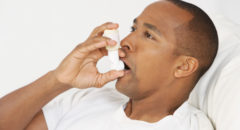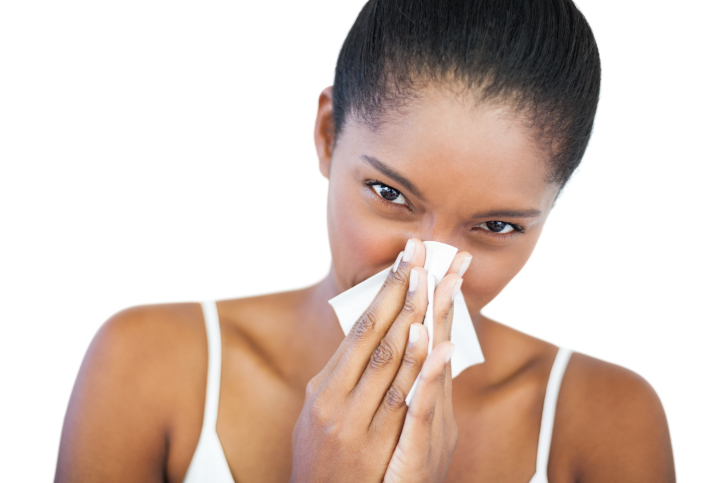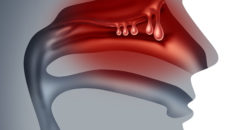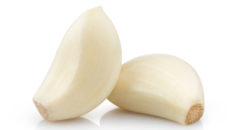 Before you start trying to treat your sinus problems, it's pertinent that you figure out why you have sinus problems.
Before you start trying to treat your sinus problems, it's pertinent that you figure out why you have sinus problems.
Allergies are a fairly common reason for sinus problems.
Allergies that affect the nose, such as hay fever and indoor allergies, can cause the nasal membranes to swell, and the passages to the sinuses – hollow spaces within the bones around the nose – to become blocked.
Mucus, which typically drains from the sinuses to the nose, can't drain. The mucus builds up and provides a fertile ground for "bugs" to grow, leading to infection. Others are more prone to sinus infections due to their anatomy, such as having narrow sinus passages.
Whatever the trigger, these five tips can help you alleviate your sinus problems.
Sinus Tip 1: Warm and cold compresses
Rotating warm and cold compresses on your sinuses should also help.
Lay back with a warm compress draped across your nose, cheeks, and forehead for three minutes.
Remove the warm compress and replace it with a cold compress for 30 seconds. Do this two to three times.
You can repeat this process two to six times each day.
Sinus Tip 2: Humidify Your Air to Reduce Problems
Strive for an indoor environment that's not too dry and not too humid. Dust mites love greater than 50% humidity. And if you're allergic to dust mites, that's bad news for your sinusitis risk.
A too-humid indoor environment can also encourage the growth of mold, which can also set off sinus problems.
Vaporizers can keep you more comfortable if you are in the midst of a sinus problem, but you need to have it close by. It doesn't do any good to have a vaporizer on the other side of the room. Make sure you clean the device daily to keep bacteria from growing in them and making you sicker.
Breathe the mist coming from vaporizers, but not the steam. Steam can easily burn you. Ten minutes at a time is often recommended.
Sinus Tip 3: Ventilate Your House
An energy-efficient house is not necessarily a sinus-friendly one. You seal up a house to make it more energy-efficient, and you end up with stale air that aggravates sinus problems.
The solution: Opening up the house on a warmer day to clear the air is a good thing, providing it's not a high-pollen day that will set off your allergies.
Sinus Tip 4: Hydrate and Irrigate Yourself to Decrease Problems
Drinking a lot of fluids can help keep your sinuses functioning well – at least a quart a day, but the more the better. Most doctors recommend that you drink enough water every day so your urine is generally clear.
Salt water nasal rinses for your nose can help, too. You can buy a kit or mix up your own at home.
The recipe: Put 3/4 teaspoon salt in a glass of water. Using a bulb syringe, flush your nasal cavities to clean out mucus and debris.
Neti pots are another way to irrigate your nasal cavities. This centuries-old remedy has gained popularity recently, thanks in part to coverage on The Oprah Winfrey Show and in other media.
The pot looks like a tea pot with an elongated spout. The devices are sold widely, for about $10 to $20, online and in drug stores and health food stores.
To use the pot, typically you mix about a pint of lukewarm water with a teaspoon of salt. Next, tilt your head over a sink at an angle of about 45 degrees. Place the pot's spout into your top nostril and gently pour the solution in.
The salt water will flow through your nasal cavity, into the other nostril, and perhaps into your throat. Blow your nose to eliminate any water, and then repeat the steps on the other nostril.
Cleaning the pots regularly is crucial.
Tip 5: Avoid Household Irritants That Can Cause Problems
Indoor allergies can wreak havoc with your sinuses. Cigarette smoke, cleaning products, hairspray, and other materials that give off fumes can all make your sinus problems worse.
Anything that has a strong odor of fumes can be a problem, especially if you are susceptible. Cigarette smoke is probably the No. 1 offender for sinuses. Try asking family members to smoke outside or, better yet, to give up the habit.
If you're sensitive to pet dander, wash or clean your pets weekly. As difficult as it is for pet owners, limiting exposure to your animals at night can help.








